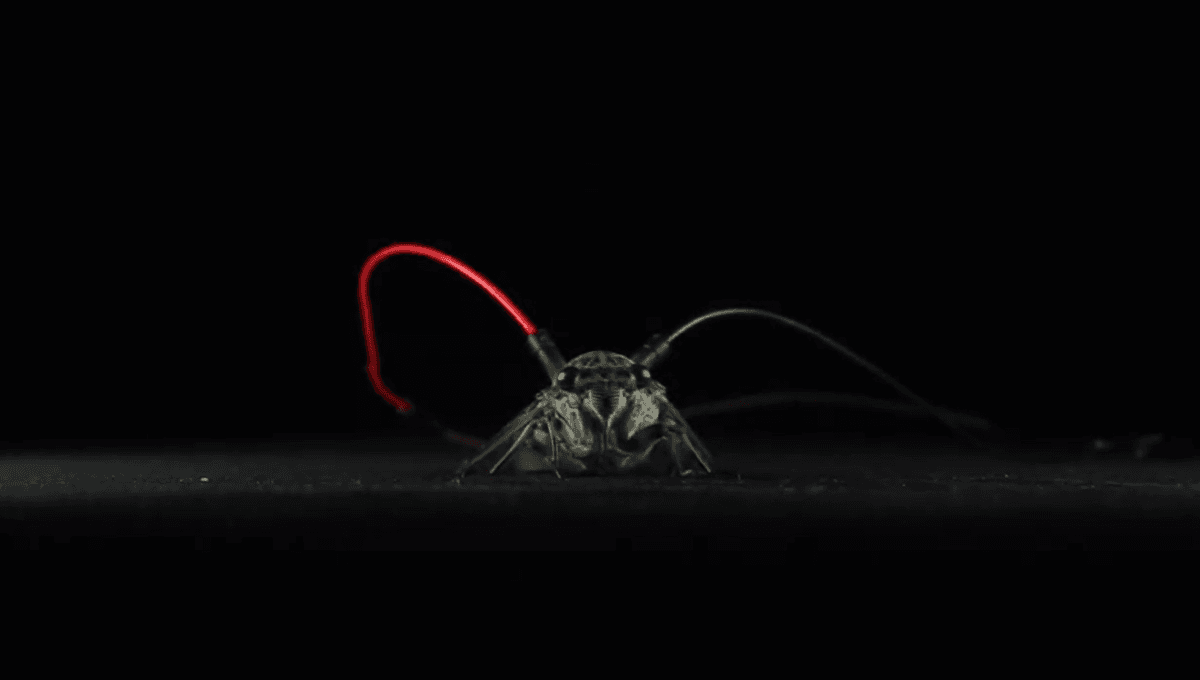
The incredible buzz of cicadas has been wielded by science like never before as a team working at the University of Tsukuba in Japan has found a way of stimulating the insects so that they performed Pachelbel’s Canon in D. Using electrodes comparable to human muscle-toning devices, the cyborg speakers buzzed their hearts out to the tune of Top Gun, too, before flying away unharmed. Must’ve been a big news day back at the brood.
Biomimetics is a field of study that solves human problems by borrowing designs from nature, often for use in robotics, but for some talents, there’s really nothing like the real McCoy. Instead of using clunky parts and wires, scientists have been experimenting with making insect cyborgs that could – theoretically – do everything from sending out disaster signals, to relocating nests to safer habitats, and ferrying objects around the home.
“These ideas remain experimental,” said paper authors Yuga Tsukuda and Naoto Nishida to IFLScience, “but they illustrate a broader vision: cooperative interfaces that collaborate with animal capabilities instead of replacing them with heavy electromechanics.”
Most recently, their vision has brought to fruition a kind of biological speaker, as – and we can’t stress this enough – they’ve got cicadas playing Pachelbel’s Canon in D. Cicadas! Those buzzy bugs that sometimes emerge apocalypse-like in unimaginable numbers (and, regrettably, have sex until their butts mold off). Musical cicadas, what will they think of next.
The song was selected for its universal familiarity and multi-part harmony that meant the authors could assign each cicada a musical “part”. Suffice to say, they smashed it out the park, but not without putting their own unique cicada spin on things.
It reminded us that, even with computer control, living systems never become mere components; their agency always ‘leaks through’ as fragile, organic variation
Tsukuda and Nishida
“Hearing the insects almost keep time while remaining wonderfully unpredictable was both thrilling and humbling,” said Tsukuda and Nishida. “It reminded us that, even with computer control, living systems never become mere components; their agency always ‘leaks through’ as fragile, organic variation.”
The stimulation involved attaching removable electrodes that delivered different voltages (all less than 2 V). The insects weren’t tied down for the performances, and flew off unharmed after the experiments. And as for the question you’re surely wondering by this point: Why? The team says these insect–computer hybrid interface has several possible uses.
They could act like ultra-low-power acoustic actuators. Despite their size, cicadas can reach impressive volumes of around 120 decibels, yet they only require only milliwatts of electrical stimulation. This could position them as strong candidates for a kind of biologically driven loudspeaker that could act as an alarm in remote areas.
This could also have applications in environmental and disaster sensing, as their patterns of buzzing could be modulated like a kind of audible Morse code signaling anything from temperature to gas levels, or a simple “I’m safe / need help” message in situations where conventional radios fail.
As the team said, these ideas remain experimental, but who knows? Perhaps one day your life could be saved by a warning call from a winged army of cicada cyborgs.
The preprint is hosted on the physics arXiv.
Source Link: Musical Cyborgs: Scientists Influence Cicadas’ Buzz So They Perform Pachelbel’s Canon In D